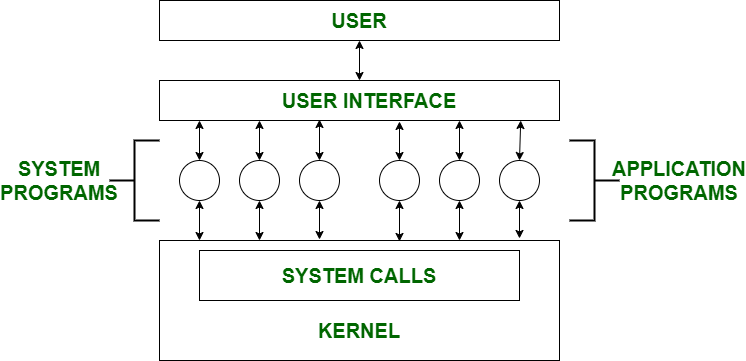System Programs in Operating System:
An operating system (OS) is the backbone of any computer system, responsible for managing resources and providing a user interface. One important component of an OS is its system programs, which are programs that are used to manage the system itself. In this blog, we'll explore what system programs are and how they are used in operating systems.

System programs are applications that provide support to the operating system and its users. These programs perform various tasks that are not directly related to the execution of user applications, but are necessary for the proper functioning of the system. Some examples of system programs include:
Device drivers:
Device drivers are software programs that allow the operating system to communicate with hardware devices. They translate commands from the operating system into commands that the hardware device can understand. Without device drivers, the operating system would not be able to interact with the hardware components of a computer system.
System utilities:
System utilities are programs that perform various system-related tasks, such as disk defragmentation, file management, and system monitoring. These programs are typically included with the operating system, and are used to help users manage their systems more effectively.
Debuggers:
Debuggers are programs that are used to find and fix errors in software code. They are essential for software development, as they help developers identify and correct errors in their code before releasing it to the public.
Shells:
Shells are command-line interfaces that allow users to interact with the operating system directly. They provide a way for users to enter commands and perform tasks without the need for a graphical user interface (GUI).
System libraries:
System libraries are collections of pre-written code that are used by software developers to perform common tasks, such as file I/O and network communication. These libraries are included with the operating system, and are designed to simplify the development process by providing pre-written code that can be reused across multiple applications.
System programs are an essential component of any operating system, as they provide the functionality that is necessary for the system to function properly. Without system programs, the operating system would not be able to interact with hardware devices, manage files and directories, or perform many other critical tasks.
In conclusion, system programs are a vital part of any operating system. They provide support for hardware devices, enable software development, and provide users with tools for managing their systems. Understanding how these programs work and how they are used can help users better manage their systems and develop more effective software.